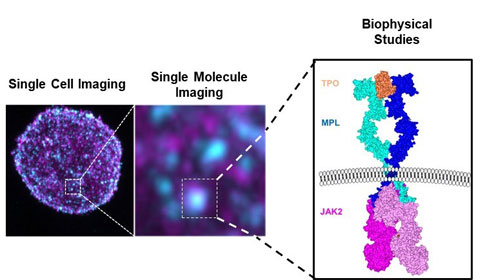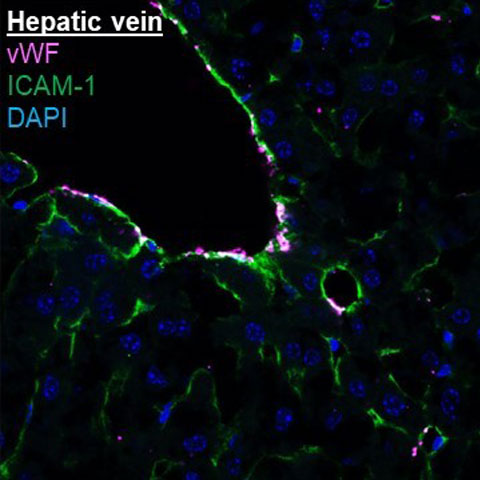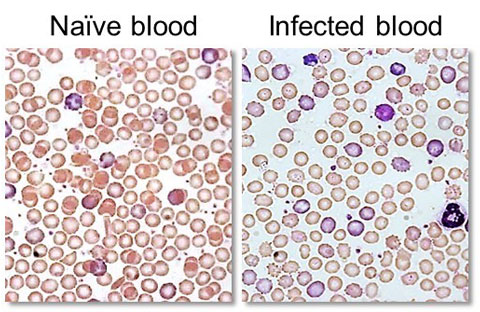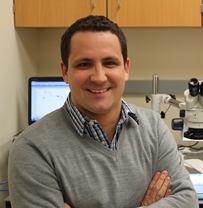Professor Ian Hitchcock
Professor of Experimental Haematology
Director of the York Biomedical Research Institute (YBRI)
Research
Many cancers are caused by mutations in genes that result in uncontrolled cell growth. The myeloproliferative neoplasms (MPNs) are a group of blood cancers characterised by the over-production of red blood cells and/or platelets. In addition to being the most common myeloid cancer, MPNs also represent an excellent disease model to study malignant clonal expansion and mechanisms of oncogene activation, allowing the investigation of therapies that target the system-wide early dysregulation, thereby preventing transformation to more aggressive forms of leukaemia.
Understanding he mechanisms of oncogenic driver mutations in MPN development.
My group have identified a key interaction between a cell surface receptor and a mutated protein that is essential for MPN development. Taking a novel inter-disciplinary approach, the Hitchcock lab and its collaborators have determined these interactions at the level of single molecules, allowing the development of novel therapies agents to block these interactions.

Figure 1: Using inter-disciplinary methods to determine receptor-oncogene interactions at single molecule level
How does the endothelium regulate MPN-induced inflammation?
Chronic inflammation is considered a key driver of MPN pathology and transformation to more aggressive haematological malignancies such as acute myeloid leukaemia (AML). We are interested in understanding the roles of the endothelium and how this controls systemic and local inflammation in these patients.

Understanding the causes of non-malignant haematological diseases.
In addition to haematological malignancies, we are also interested in understanding why certain conditions lead to underproduction or over clearance of both platelets and erythrocytes. In particular, we are interested in autoimmune platelet clearance, and how chronic infection can lead to thrombocytopenia, anaemia and haematopoietic stem cell failure.

Figure 3: Identifying key differences in circulating platelets and erythrocytes in models of chronic infection
Teaching and scholarship
![]()
My teaching in the Department of Biology and for the Hull York Medical School focuses on blood cell production, regulation and the development of haematological malignancies, thrombotic disease and coagulopathies.
![]()
Biomedical Science, Stage 2 – Understanding Health and Disease. Biomedical Science, Stage 3 – Mechanisms to Therapies HYMS – Phase 1
![]()
Stage 1 and stage 2 – My tutorials focus on haematopoiesis and the key function of specific blood cells and how haematological malignancies develop. This integrates key knowledge in addition to discussing primary research papers and development of research techniques.
![]()
Cell and molecular biology of haematological diseases.


